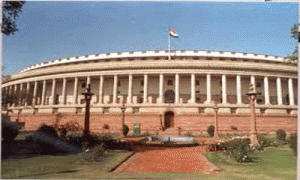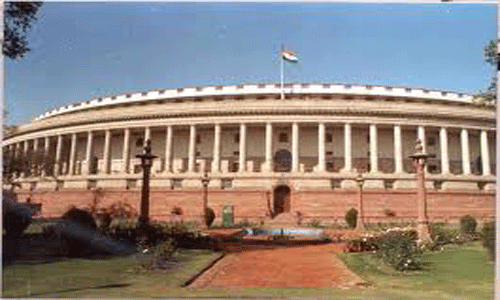By: Ravi Sinha
Track2Realty Exclusive
 The Centre’s plan to regulate the real estate sector by safeguarding consumers from land sharks has hit a road block with several states opposing some provisions of a proposed bill. Track2Realty has learnt that in an effort to bring states on board, the Centre intends to drop the provision of giving direction to the States under the Real Estate (Regulation and Development) Bill.
The Centre’s plan to regulate the real estate sector by safeguarding consumers from land sharks has hit a road block with several states opposing some provisions of a proposed bill. Track2Realty has learnt that in an effort to bring states on board, the Centre intends to drop the provision of giving direction to the States under the Real Estate (Regulation and Development) Bill.
Track2Realty has been the first to report that the Bill is due to be delayed since Centre is apprehensive of its fate going the NCTC way. http://www.track2realty.track2media.com/real-estate-bill-not-to-be-tabled-in-the-current-session-of-parliament The Bill is now likely to be brought in Parliament during monsoon session.
Confirming the drop in the provision, a senior Government official told Track2Realty, “Since land is a state subject the thinking in the Centre is to drop the provision related with giving directions to the States.”
Meanwhile, States such as West Bengal and Tamil Nadu are yet to submit their views on the proposed draft.
States were earlier requested to give their views by May 18 which was later extended. Despite the latest extension, the Centre is still waiting for the replies.
In the meantime, the Central Government is working patiently to include States’ views in the draft before taking it for inter-ministerial consultation and approval of the Cabinet.
“A number of States have given their views. For example, Chhattisgarh Government is against such a Bill with the thinking that it is a state subject while the Maharashtra Government wants to prepare its own draft,” the official added.
Clause 62 of the draft Bill proposes that the Central Government may give such directions, as it may deem necessary, to a State Government or, as the case may be, the Union Territory for carrying out all or any of the provisions of this Act and the State Government or the Union Territory shall comply with such directions.”
The Bill aims to establish a Regulatory Authority for regulation and planned development in the real estate sector and to ensure sale of immovable properties in an efficient and transparent manner and to protect the interest of consumers in the real estate sector.
Talking about imprisonment clause, the official clarified that there is no plan to expand it.
The draft Bill says that punishment for selling the project without registration with the Proposed Real Estate Regulate may include imprisonment up to three years or a penalty up to 10 per cent of the estimated cost or both.
Though the Bill says the registration clause is proposed for a project where land size exceeds 4,000 sq. m, the State Government will be free to amend the limit.
The Centre has allayed fears that it will impinge on the states’ rights. It is learnt that as per the amendment the states are free to make their own bill on the lines of the Centre’s and can have their own regulatory authorities. The Centre hopes that the bill will be placed in the monsoon session of Parliament.
As per the draft Bill, promoters could face three years’ jail or/and a penalty up to a tenth of the estimated cost of the real estate project for failure to comply with its key provisions. The draft also has a provision for returning the amount paid by a buyer, along with interest, if a promoter fails to complete a project on time and give possession as per the agreement.
Besides, to ensure timely completion of the project, real estate companies must compulsorily deposit 70 per cent of the funds received from apartment or plot buyers in a separate bank account. All real estate companies have to register with the authority. At the Central level, a real estate appellate tribunal has been proposed to hear the grievances.






2 Comments
Rightly said. I doubt it will ever be a reality.
Government at Centre must act tough for consumer protection.